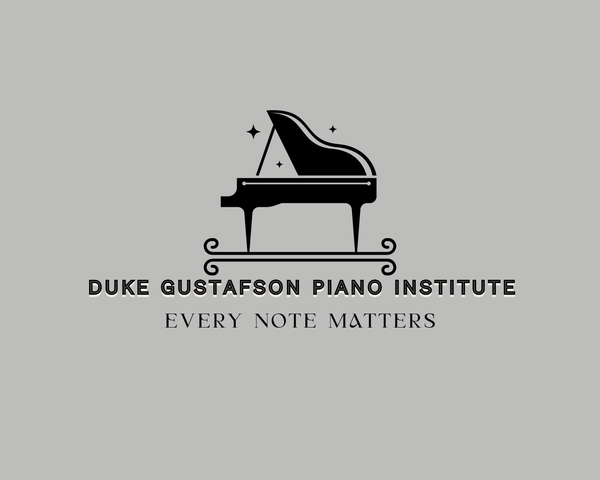Why Most People Quit Piano — And How to Beat It
Maybe you don't think you're good enough?
Or perhaps you are scared of failure or don't always feel the fire burning inside you?
Whatever the case, I understand what you're going through, and I've had many doubts about playing the piano long-term. So, allow me to open up a little.
My Story
Listen closely; I am not a prodigy, but I want to be a concert pianist someday. I started my piano journey later in my life (around 8 years old), and I'm 16 now.
I always think about all of the child prodigies who are certainly bound to become concert pianists, and I ask myself if there's even hope for someone like me.
And the answer is yes, even though this took me a long time to realize.
"I'm not good enough"
Sometimes, we realize that we aren't satisfied with our skill levels, and this is where many people make the mistake of going into despair and giving up all hope of becoming a master.
But instead of this, why don't you ask yourself these two life-changing questions?
- "How good do I want to be?"
- "What must I do to get to my desired level?"
By answering these questions, many realize they want to play piano just for their enjoyment. That's perfectly fine! That's why you should answer the questions.
But I also understand that many actually can't be happy with their skill level at its current state, and that's also fine!
However, quitting is not the solution; this is where the second question I listed comes into play.
The Path Forward
Instead of quitting when you realize you aren't as good as you may desire to be, why don't you try to figure out how to get there?
- What has to happen?
- How much more do you have to practice?
- What pieces do I have to learn before getting to my dream pieces. (Can't go straight to them if they are too technically advanced.)
The first step to not quitting because of your skill level is just realizing that goals and dreams don't happen overnight.
They take time, careful thought, and hard work.
Every person must do something different to achieve their goals, but for me, trusting in my teacher's guidance was one of the biggest things.
It's not like I was actively skeptical of everything she said, but I wanted to do things my own way, and that was ultimately my biggest progress killer early on.
Once I finally figured this out and changed how I acted, I noticed my progress went much faster than before putting trust in my teacher's guidance.
This doesn't look the same for everyone, but the key is to identify what is stopping you from quicker progression, and this takes careful observation.
Whether it's bad practice habits, not listening to your teacher, or simply a lack of discipline altogether, the first step to getting to your desired level is figuring out what is stopping you.
This is something you have to do way more than just one time.
You need to look out for things that are slowing your progress constantly.
If you always practice searching for things slowing you down and fixing them, you don't only get better, but you get faster at getting better, which is the ultimate goal when trying to excel at any art quickly.
"I don't feel motivated anymore."
No matter how passionate one is about the piano, you are not always going to feel energetic about practicing every day.
Not even the best pianists in history always felt motivated.
So, how do you deal with this common feeling and not allow it to make you quit?
After you acknowledge that, you'll never always be motivated. What can you do with that information?
You have to prepare and know what you will do when you feel unmotivated, not if you feel unmotivated.
The truth is that you're going to have to push through it. It won't be easy, comfortable, or fun.
But you have to ask yourself if your dedication to the piano goes beyond your surface feelings.
Your commitment isn't tested when you're motivated; it's tested when you're unmotivated.
"I'm afraid of performing or being judged."
This is a completely understandable feeling, and nearly every single passionate musician has had this fear. You are not alone.
What do you need to know about this feeling?
If you're scared about what people think of you playing, that means you care about your art and genuinely desire to be good.
The problem is that if you let that feeling keep you from ever playing for others, that will never benefit you.
Even the most amazing pianists of our day have felt like this, but how did they pass this? How did they not allow this to stop them?
How to Get Past Performance Fear
Firstly, playing in front of people regularly is an absolute must for aspiring musicians because it's one of the best ways to get constant feedback on your performance skills.
Ensure you're always seeking honest feedback on what they think could be better, not only what you want to hear. (Even if they aren't musicians)
After you receive constructive feedback, don't let it discourage you.
No one in the history of piano playing has ever had a perfect first performance, so don't be afraid to get started!
What you need to do after you receive feedback on your playing is determine whether what you're doing in the practice room is helping you get better at the things you need to work on or digging you deeper into bad habits.
You constantly need to reevaluate and adjust what you are doing in the practice room to improve your performance level.
Don't only evaluate your progression by itself, but continually assess your speed of progression directly affected by your practice habits.
Final Thoughts: Why You Should Keep Going
If you feel like quitting the piano, you are not weak. You're human!
It's an entirely normal feeling.
All the pianists who have inspired you experienced doubt, fatigue, and stress about continuing their journey.
But the difference between those who quit and those who have been successful isn't talent; it's perseverance.
So here is my challenge to you:
- Keep going.
- Keep asking the hard questions.
- Keep reevaluating your progress.
- Keep refining your progress.
- And keep practicing, even when it's hard.
The journey of piano progression isn't reserved for the "gifted."
It's earned by the relentless—by those who keep going, even after the excitement disappears.
Please remember that you do not need to be perfect; you need to be persistent, no matter what step of your journey.

